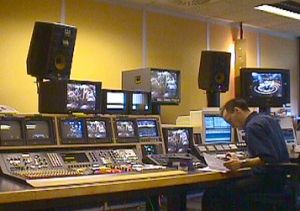All Music Production Institute modules can be taken on an individual, à la carte, one-by-one basis. You, the student, can choose as many modules as you need and take them in any order that you desire. These individual modules are provided to help you gain the specific knowledge you require to further your career in the music industry. We are ready to assist you in your rise to stardom.
Recording 101 Module
Module Overview:
This introductory module provides students with an overview of the key aspects associated with recording. Students gain an insight into the basic functionality of microphones and are guided on how to utilize them properly with modern recording interfaces. Students also get the opportunity to begin learning how to use and operate the software programs commonly used in both home based and commercial recording studios.
REC 01: Microphones
REC 02: M-Box Overview
REC 03: Cables and Interconnects
REC 04: Introduction to Pro Tools
REC 05: Recording
REC 06: Editing
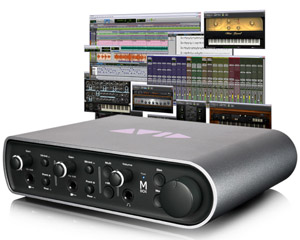
Digital Workstation 101 Module
Module Overview:
The Digital Workstation module is designed to give students an overview of the various working practices and compositional techniques that are used by many of the music industries leading professionals. Students will initially be introduced to MIDI controllers and guided on how to use these devices from a compositional standpoint. Students will also gain familiarity with sequencing, sampling, drum programming and virtual instruments so that they can begin producing material for their own musical portfolios.
DIG 01: Introduction to MIDI
DIG 02: Device Connectivity
DIG 03: Sample Triggering
DIG 04: Sequencing
DIG 05: Drum Programming
DIG 06: Beginner Beat Production
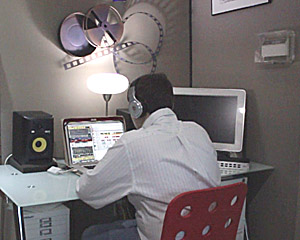
Introduction to Mixing Module
Module Overview:
The introduction to mixing module provides students with an overview of the fundamental aspects and approach procedures which underlie the art of mixing digital audio. Here students gain the knowledge required for identifying and rectifying many of the problematic issues which aspiring producers encounter when trying to mix their musical material. They are also guided on how to avoid potential pit falls which can often compromise the quality of their final mixes..
INM 01: Volume Balancing
INM 02: Panning Techniques
INM 03: Buses
INM 04: Returns
INM 05: Grouping
INM 06: Automation
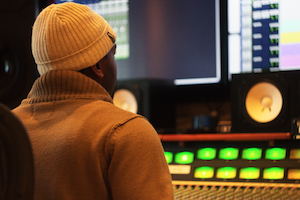
Plug-In Overview Module
Module Overview:
In this module students are introduced to various types of plug-ins. Particular emphasis is placed on the unique functions associated with each plug-in and how these functions impact on the alteration of sound signals. The main aim of this module is to provide students with an understanding of how sound can be manipulated in a creative manner and to help them identify which plug-ins are most appropriate for achieving specific sound effects.
PLO 01: Equalization
PLO 02: Compression
PLO 03: Reverb & Delay
PLO 04: Chorus & Flanging
PLO 05: Phasing & Modulation
PLO 06: Distortion
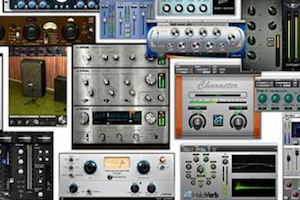
DAW Software Module
Module Overview:
Today’s world of modern music production offers us numerous software programs to choose from. From hip hop to rock, and from techno to jazz, these programs give us a wide array of creative tools. Here at Music Production Institute, we offer introductory courses in all of todays current music software programs. Depending on your preferred genre of music, we can recommend a software program course that is specifically designed to suit your production needs.
SOF 01: Software Functionality
SOF 02: Interface Layout
SOF 03: Editing Tools
SOF 04: Production Techniques
SOF 05: Session File Management
SOF 06: Exporting Files
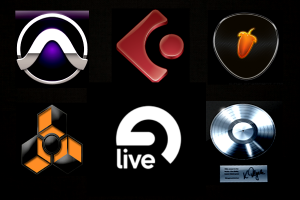
Introduction to Sonics Module
Module Overview:
This introductory module provides students with a broad understanding of the various physical & mechanical attributes associated with sound energy. It also details the behavioral nature of sound within the constructs of differing acoustical environments, and outlines how these constructs influence sound perception. A brief overview of psychoacoustics is then presented so that students can understand how environmental acoustic energy is processed the human hearing mechanism.
SON 01: The Fundamentals of Sound
SON 02: Waveform Characteristics
SON 03: Amplitude
SON 04: Frequency
SON 05: Wavelengths
SON 06: Velocity
SON 07: Phase
SON 08: Harmonic Content
SON 09: Acoustics
SON 10: The Human Hearing Mechanism

Microphones Modules
Module Overview:
This module focuses on establishing a firm understanding of the various types of microphones used in professional audio recording. Students are guided on microphone functionality and how to determine which models best suit specific recording applications. This includes an analysis of frequency response and directional pick up patterns. The module concludes with an overview of preamplifiers as well as mono and stereo recording techniques.
MIC 01: Introduction to Microphones
MIC 02: Microphone Functionality
MIC 03: Microphone Types
MIC 04: Directional Response
MIC 05: Frequency Response
MIC 06: Gain Staging
MIC 07: Interfacing with Preamplifiers
MIC 08: Gain Trimming & High Pass Filtering
MIC 09: Microphone Placement
MIC 10: Mono / Stereo Recording Techniques
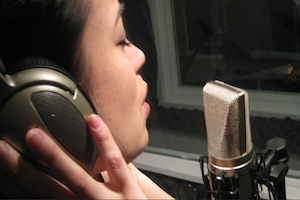
Signal Flow Module
Module Overview:
This module teaches students the various cable types, interconnects and patching interfaces commonly used in modern recording studios. Students are shown which specific cable types are used for connecting microphones and instruments to commonly used recording hardware. They are also guided on aspects of signal flow to ensure that they understand how to correctly route signals from external hardware into digital audio workstations.
SFL 01: Balanced Cables
SFL 02: Unbalanced Cables
SFL 03: Jack Cables
SFL 04: MIDI Cables
SFL 05: Interconnections
SFL 06: Adapters
SFL 07: Patchbays
SFL 08: I/O Configurations
SFL 09: Signal Flow
SFL 10: Troubleshooting
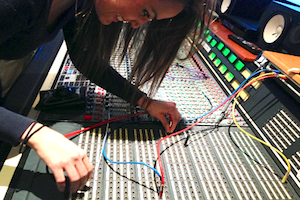
Pro Tools 101
Module Overview:
This module introduces students to Pro Tools, which is the industry standard recording and music production software program. They are guided on how to use the basic features and functions of the software interface and shown how to store and recall recording session files. Upon completion of this module, students will have gained the required knowledge to begin recording and exporting material for their musical portfolios..
PTL 01: DAW Overview
PTL 02: Session File Management
PTL 03: Session Launching
PTL 04: File Importing
PTL 05: Track Layout
PTL 06: I/O Set Up
PTL 07: Professional Recording
PTL 08: Editing Tools
PTL 09: Interface Functionality
PTL 10: Bouncing & Exporting
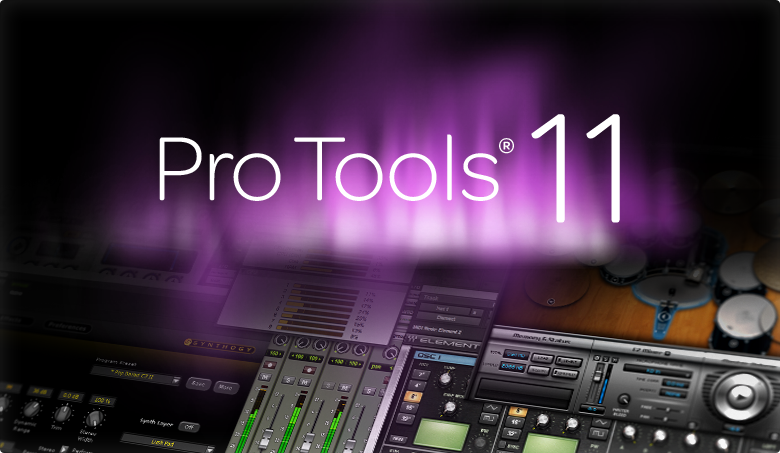
Digital Audio Module
Module Overview:
This module provides students with an understanding of how analog sound waves are captured during the recording stage and transformed into digital data for internal computer processing. Students are tutored on how this type of processing works with specific reference to sampling rates, bit depths and data storage. This is for the purpose of establishing a firm understanding of how analogous audio is captured, processed and reproduced by digital audio workstations.
DAU 01: Digital Basics
DAU 02: A/D Conversion
DAU 03: Sampling
DAU 04: Bit Depths
DAU 05: Data Storage
DAU 06: Quantization
DAU 07: Sound File Types
DAU 08: Clocking
DAU 09: Anti Aliasing
DAU 10: D/A Conversion
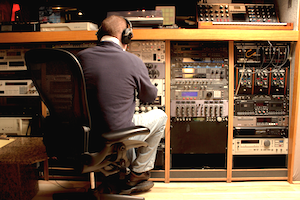
MIDI Overview Module
Module Overview:
This module introduces students to MIDI and demonstrates how MIDI information is sent, received, read by MIDI devices and Digital Audio Workstations. Students are then shown how to interface various external controllers and configure port & device settings. On going supervision is provided throughout to ensure that students develop proficiency at using the technology in a creative capacity.
MDO 01: Introduction to MIDI
MDO 02: MIDI Controllers
MDO 03: MIDI Configuration
MDO 04: Device Connectivity
MDO 05: Sample Triggering
MDO 06: Data Messaging
MDO 07: Arranging
MDO 08: Sequencing
MDO 09: MIDI File Storage
MDO 10: Converting MIDI to Audio
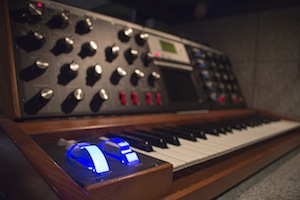
Foundations of Music Theory Module
Module Overview:
This module is designed to give students a basic understanding of the main elements associated with music theory. From tempo and rhythm; to scales, keys and chord structures; students are armed with the knowledge needed to begin composing basic musical phrases which incorporate chordal and melodic progressions.
FMT 01: Time Signatures
FMT 02: Tempo
FMT 03: Key Signatures
FMT 04: Step Measurement
FMT 05: Major Scales
FMT 06: Minor Scales
FMT 07: Chord Structures
FMT 08: Chord Progression
FMT 09: Transposition
FMT 10: Form Structures

Signal Processing Module
Module Overview:
This module addresses all of the commonly used effect units used in pro audio and music production. Each unit type is presented individually in order to give students a firm understanding of the different methods of sound signal alteration. Individual parameter controls are also explained in detail so that students understand how to use effect processing appropriately across a range of applications.
SPR 01: Equalization
SPR 02: Compression
SPR 03: Reverb
SPR 04: Delay
SPR 05: Chorus
SPR 06: Flanging
SPR 07: Phasing
SPR 08: Modulation
SPR 09: Tremelo
SPR 10: Distortion

Introduction to Beat Composition Module
Module Overview:
The beat composition module invites students to apply all of their newfound knowledge in a creative capacity. The module begins with a workshop which focuses on the production techniques used by many highly acclaimed producers and artists. In the following classes, students are encouraged to begin composing and producing their own original musical material by utilizing the skills learned in modules 4 through 8.
IBC 01: Drum Design
IBC 02: Bass
IBC 03: Chords
IBC 04: Melody
IBC 05: Sampling
IBC 06: Sequencing
IBC 07: Layering
IBC 08: Creative Effects
IBC 09: Production Workshop
IBC 10: Analysis
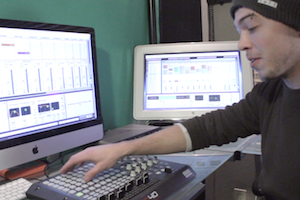
Mixing Module
Module Overview:
This module walks students through the stage of audio post-production. They are guided on the various practices and procedures associated with mixing and mastering digital audio. Emphasis is placed on how to identify the most appropriate means for maximizing the individual sonic attributes and characteristics of recorded and sequenced audio.
MIX 01: Volume Balancing
MIX 02: Panning Techniques
MIX 03: Gain Structuring
MIX 04: Sequencing
MIX 05: Buses
MIX 06: Returning
MIX 07: Effects Sends
MIX 08: Grouping
MIX 09: Automation
MIX 10: Exporting
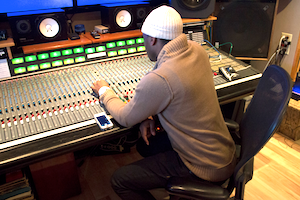
Music Business Mentoring Module
Module Overview:
The single most important thing to remember prior to pursuing a career as a performing artist is that the music industry is a serious business with various facets. This component of the program outlines many of the important aspects of music business management. Here, students will learn about intellectual copyright, recording contracts, publishing deals, marketing and branding. The primary aim is to ensure that students are given all of the important knowledge needed for handling the business aspects of their career.
MBM 01: Intellectual Property
MBM 02: Copyright Law
MBM 03: Contracts
MBM 04: Marketing & Branding
MBM 05: Web Commerce & Social Media
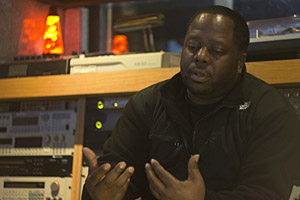
Instrument Lessons Module
Module Overview:
The ability to play a musical instrument is an advantageous asset to any aspiring artist. Not only does it provide them with a means for translating their creative ideas into musical compositions, it also adds an extra dimension to their artistry by becoming an extension of their musical persona. Here at MPI we employ expert instrumentalists who can teach you to play any instrument of your choice to an advanced level.
INL 01: Tuning
INL 02: Key Signatures
INL 03: Major & Minor Scales
INL 04: Chord Structures
INL 05: Chord Progressions

Vocal Coaching Module
Module Overview:
Most Artist Development mentors who work in the music business agree that vocal coaching is an essential practice. Even established artists regularly utilize vocal coaches in order to maintain and even further improve their singing ability. It is essentially what separates good singers from truly great singers. Here at MPI we’ll help you improve as a singer by building on your existing vocal strengths and improving your weaknesses. We will help you extend your vocal range, guide you on breathing, and hone your delivery to ensure that you reach your full singing potential..
VOC 01: Breathing Exercises
VOC 02: Diction
VOC 03: Detail
VOC 04: Delivery
VOC 05: Expression

Creative Direction Module
Module Overview:
This aspect of artist development focuses on helping artists to hone their skills as writers by guiding them on the compositional techniques associated with various genre’s of music. It encourages them to explore song writing in new and creative ways so that they can begin identifying and carving out their own niche as artists. It also helps artist to further refine their creative niche by helping them understand where they fit within the current commercial music market.
CRD 01: Lyric Writing
CRD 02: Music Styles & Structures
CRD 03: Song Composition
CRD 04: Melody & Harmony
CRD 05: Instrumentation & Production
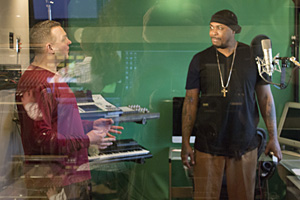
Studio Etiquette Module
Module Overview:
Recording studios can often be a daunting place for people taking their first steps towards making that first hit record. The sight of racks of equipment and rows of buttons surrounding them can often take them out of their comfort zone. Any recording professional will tell you, the artist needs to be fully at ease before they can deliver their best sounding performance. Here at MPI we will give you an overview of how the recording process works, so you can gain the reassurance to participate in the creative recording process with confidence.
STE 01: Microphones
STE 02: Pro Tools
STE 03: Outboard Effects
STE 04: Mixing
STE 05: Post Production
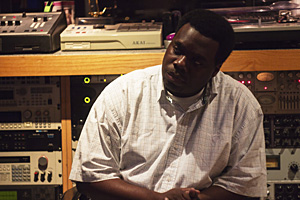
Songwriting Workshop Module
Module Overview:
New York’s premier songwriting workshop welcomes all musicians, composers & writers wishing to hone their musical craft. It is open to participants with backgrounds across a wide range of musical styles and genres. It serves as an open collaborative environment where participants are encouraged to perform and openly discuss various aspects of their music with their contemporary peers.
SWW 01: Introduction
SWW 02: Verses
SWW 03: Chorus
SWW 04: Bridge
SWW 05: Voice Development
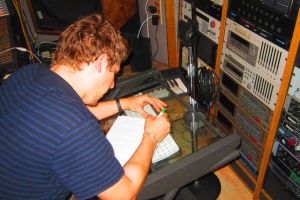
Ableton Live 1 Module
Module Overview:
Learn to become comfortable and navigate using Ableton Live. This module provides you the knowledge to work with loops, clip envelopes, automation, and working with MIDI. It provides experience in experimenting with live instrument presets, programming original drum beats, track automation, and MIDI sequencing. This module provides you with an introduction to effects and routing, as well as applying effects to tracks and return tracks.
ABL 01: Introduction to Ableton Live
ABL 02: Ableton Live Automation & Drum Beats
ABL 03: MIDI Channels & Digital Instruments
ABL 04: Mapping, Effects & Routing
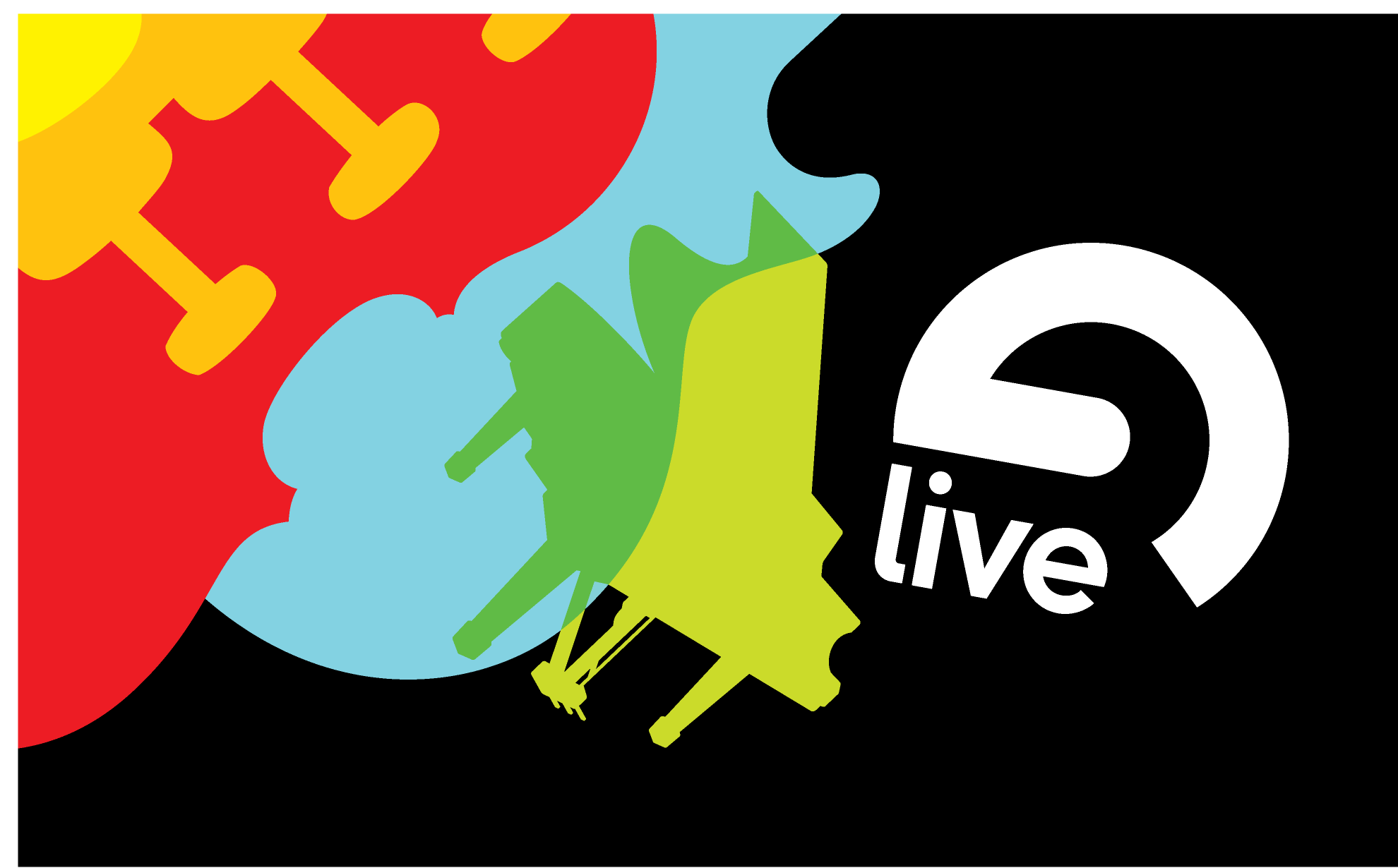
Ableton Live 2 Module
Module Overview:
This module provides you the knowledge to modify and shape drum sounds, and separate drum racks to prepare for the mixing phase. Learn how to use digital drum racks, and how to record original drum and percussion parts. This second module provides you the knowledge on how to properly use analog instruments with Ableton Live. Create bass lines, melodies, leads, pads, textures, and keyboard parts. Gain indispensable knowledge with an introduction to simpler and sampler instruments and learn different industry-standard audio recording techniques.
ABL 05: Ableton Live Intermediate Drums
ABL 06: Ableton Live Advanced Drums
ABL 07: Bass Lines, Melodies & Leads
ABL 08: Pads, Textures & Keyboard Parts
ABL 09: Audio Recording
ABL 10: Intro to Simpler & Sampler Instruments

Ableton Live 3 Module
Module Overview:
Learn to become comfortable and navigate using Ableton Live. This module provides you the knowledge to work with loops, clip envelopes, automation, and working with MIDI. It provides experience in experimenting with live instrument presets, programming original drum beats, track automation, and MIDI sequencing. This module provides you with an introduction to effects and routing, as well as applying effects to tracks and return tracks.
ABL 11: Building Custom Drum Racks
ABL 12: Bass Lines, Melody & Lead Sounds
ABL 13: Pads, Textures & Keyboard Sounds
ABL 14: Creating Special Effects
ABL 15: Automating Effects

Video Pre-Production Module
Module Overview:
This introductory module details the format necessary for writing a music, video and television script. Students are guided in developing their vision and presenting a script in a clear and concise manner. A script that is accessible to the entire crew and actors. Students are taught how to draw a storyboard as a method of depicting a scene. Storyboards are an imperative tool in film and music as they demonstrate precisely what a scene will need to look like. Students will get an overview on the importance of a budget and how to create a budget that is effective and efficient in gaining the best possible result for your project. Composing a business plan for your project is another field that will be explored in this module. Students will comprehbeatcompositionend the compulsory need for developing a business plan. This module concludes with location scouting, determining how to select the ideal location for your project; scenery, in a studio. There are several factors that need to be taken into consideration when deciding on a location; the module will show student factors involved in determining the most ideal location for their project.
PRP 01: Screenwriting
PRP 02: Treatments
PRP 03: Storyboard
PRP 04: Financing
PRP 05: Logistics
PRP 06: Crew Management
PRP 07: Planning
PRP 08: Location Scouting

Video Production Module
Module Overview:
This module explores the various cameras available and the camera function. Students will be able to conceive which camera is optimal for their specific project. Students will be provided with an understanding of shutter speeds, static and movement, and the importance of these features when filming a project. Lighting is another field students will establish a thorough understanding of. Understanding light is imperative to developing a project; students must ensure lighting is controlled in a shot. Lighting can ultimately enhance or devastate a shot, thus lighting is crucial in any music, film or television project. Students will get an insight into lighting elements; three-point lighting, four-point lighting and back lighting. Students are directed on the use of background lighting and how to use background lighting as a means of enhancing a shot. This module also covers the significance of sound, as sound is often used to depict a picture and evoke a feeling or mood from the audience. Students will learn the influence sound can have on a project. License and permits are another factor that students will need to grasp, understanding regulations when filming is essential, the consequence for not following regulations can be detrimental. To conclude this module, students will be coached on directing a film, video or television.
PRD 01: Licensing
PRD 02: Permits
PRD 03: Camera System
PRD 04: Camera Technique
PRD 05: Lighting
PRD 06: Sound
PRD 07: Cinematography
PRD 08: Directing
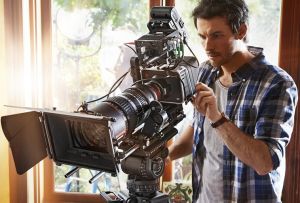
Video Post-Production Module
Module Overview:
In this final module, students will gain an understanding of video editing and the techniques required to edit accurately. Students will gain a thorough understanding of the precise method of capturing and transferring footage. Students are shown various effects that can be added to your project; transition effects, motion graphics, titles and visual arts. The benefits of sound and audio will be made abundantly clear; the audio of post-production video will reinforce and compliment what is being displayed in the shot. Students will become proficient in color correction. Color correction is crucial in the final stages of video editing; the video must be colored precisely. In the final stages of this module, students are taught how to encode, output video, and how to deliver the final project. There are numerous formats available for downloading and streaming a video. Students will be able to accurately determine what format they need for their project, depending on what the project will be used for.
PPD 01: Video Editing
PPD 02: Title, Graphics and Visual
PPD 03: Trimming Techniques
PPD 04: Capturing and Transferring Footage
PPD 05: Transition Effects and Visual Effects
PPD 06: Audio Post-Production, Sound Effects and ADR
PPD 07: Outputting and Encoding
PPD 08: Color Correction, Project Finalizing and Deliverables
